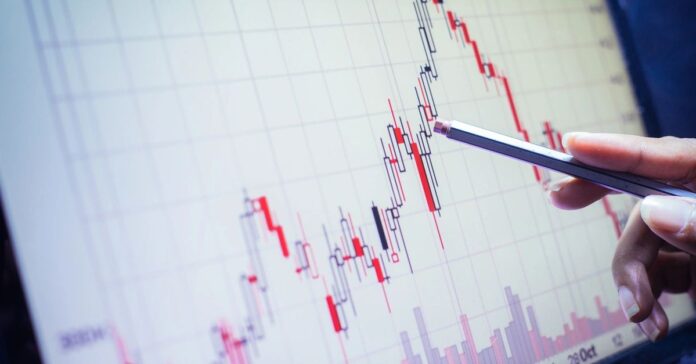Will 2023 be the year in which the U.S. economy collapses under its own weight? Or will we somehow pull out of a slump? Will stock prices continue to fall, or will the Fed resort to QE and pump them back up?
Presidential apologists would have you believe it is all smooth sailing, but I’m afraid it is anything but. While I am not convinced the economy will collapse, I don’t expect a recovery in the next six months. More likely, the economy will continue to slide downhill unless we see peace in Ukraine.
“Downhill” means inflation stays elevated or increases. Credit card and other consumer debt will continue to grow. Housing values slip while sales slow even further. More people will become unemployed or underemployed. Consumer sales will fall. Factory orders will drop. Food and fuel prices will rise, driven both by inflationary pressures and supply and demand imbalances. Consumers will cut back on discretionary spending. A recession will follow.
None of this will be good for you and me. Unfortunately, there is very little you can do to protect yourself from an economic downturn and recession unless you are already living well below your means and have a cushion in place to protect your way of life.
Keeping your Head Above Water
The key to surviving an economic collapse is to keep your head above water. This is true regardless of whether you are young and still waiting to reach your wealth-building years or are fifty and your kids have finally moved out of the house.
The best way to do this is to keep money coming in while minimizing the amount of money going out.
Stay Employed
The most important way to keep your head above water is to keep the income flowing. For most of us, this means staying employed. Don’t quit a steady job that is giving you sufficient hours. If your hours are being cut, look for a second job or pick up some gig work, but keep the first one.
If your income isn’t going up as fast as your expenses, look for additional ways to make money. Pick up some overtime, even if it cuts into your family time. Work harder; in this era of quiet quitting, you might get a promotion and a raise. Explore options for a sideline job or gig work. See if you can turn a hobby or skill into come income. Can you lay tile? Cut firewood? Board someone’s dog? If you can earn only an extra $300 a month, that can make a difference.
If you are eligible for retirement, consider delaying retirement for another year or two unless you have a couple of million dollars or more in your retirement accounts. The later you retire, the bigger your social security payment will be and you won’t have to draw on your investments while the market is down. If your company offers you an early retirement package, talk to a financial advisor about whether it is worth it. I would want them to offer healthcare and at least a year or two more at my current salary.
Pare Back your Spending
We’re doing this, and while it isn’t fun, it isn’t that bad. Most of us waste money on things we don’t need. Just identify what those non-critical expenses are and stop spending on them. For example, instead of eating out, we occasionally have another couple or two over for dinner. A few weeks later, they host us. This is far cheaper than going to a restaurant for dinner.
You can save money by moving into a smaller home, moving to a less expensive location, and making other sacrifices. Or you can get a tenant to help offset your bills. If you are paying $700 or more a month for a car, I would downgrade to an older or smaller vehicle. A 2005 Camry will get you where you are going for much less than an expensive vehicle.
Become Debt Free
Keep in mind that interest is often a big expense for people with credit cards and other personal debt, and this is increasingly true as interest rates rise. You can reduce your payments by eliminating your debt. Stop eating out, stop buying new things, cut back on leisure travel, and put those funds towards your outstanding credit card debt.
First, stop using your cards. Cut them up if you have to. If you have multiple cards, make minimum payments on all but the one with the lowest balance. Make the biggest payment you can on that card. Once you pay it off, start paying off the next highest credit card.
You may need to stop or reduce your prepping activities to pay off your credit cards. As long as you have a few months of food in your prepper pantry, that’s OK. Our spending on prepping rises and falls. Right now, our purchases are at a minimum. Most of what we are doing is restocking what we eat or taking advantage of sales.
Act Proactively
If your employment is secure, you are not living paycheck-to-paycheck, have little or no debt, and can put aside some savings then you can go beyond keeping your head above water and make some forward progress to protect yourself in the event of a collapse.
Build your Reserve Fund
If you are debt free, then build up a cash cushion. This will be your emergency fund. Tap into it if you lose your job or costs suddenly shoot up, which is often the case when a currency collapses. Dave Ramsey recommends having a six month emergency fund. Given the current times, I would aim for at least a year. Not only do we face an uncertain economic future in which your money may lose its purchasing power, it may become much harder to recover if companies are laying people off and declaring bankruptcy.
Right now, your reserve fund should be in cash, not stocks, bonds, or mutual funds. Keep the bulk of it in a credit union or spread across multiple banks so the collapse of one will not wipe it out. Have a month’s worth of cash at home in case we experience a lengthy “bank holiday” in which the government closes banks to prevent a bank run.
If you are lucky enough to already have this kind of cash cushion, I would look into diversifying into silver, gold and Bitcoin or Ethereum.
Invest in Hard Assets
Gold and silver are the ultimate hard assets. Unlike cryptocurrencies, if you have physical possession of yoru bullion, it won’t disappear when the grid goes down or the Internet fails. Unlike fiat currency, they have value even if the government who minted the coin has collapsed.
But hard assets can include other physical goods. I consider my store of lead, copper, and brass (all neatly arranged in different size cartridges) to be a hard asset. So are my guns. If necessary, I could sell or trade these, now or after an economic collapse. More than one survivalist has speculated than .22LR ammo will have great value a few years after the SHTF. I expect 5.56 and 9mm will, too.
Like gold and silver, the price of ammunition fluctuates. Buy low and sell high.
Your biggest asset may be your home. You probably know that real estate values depend on three things: location, location, location. Consider how a recession, rising crime, food shortages, or war might affect your location and plan accordingly. At some point, living in a good school district may become less important than living on five acres of pasture where you can have a large garden and raise small livestock.
If you want to invest for the long run, consider farmland, which has been a consistent store of value that often appreciates at or above the rate of inflation. You can own farmland without being a farmer. Just lease it to someone who is. That will give you an income as well as allow you to enjoy the benefits of appreciation.
Retirees
If you are retired or living on your traditional investments, then try to draw from the cash value of your investments and hope that the stocks and mutual rebound before you have to sell them. Rely as much as possible on your fixed income from a pension and/or social security. Cut your expenses and identify assets you can sell.
Whether you are retired, just starting out, or somewhere in between, a recession will be uncomfortable, a depression terrible, and an economic collapse worse yet. Prepare as best you can, strive to keep incoming flowing, and be prepared to do what is necessary. You can’t recover and rebuild later if you don’t first survive the collapse.








